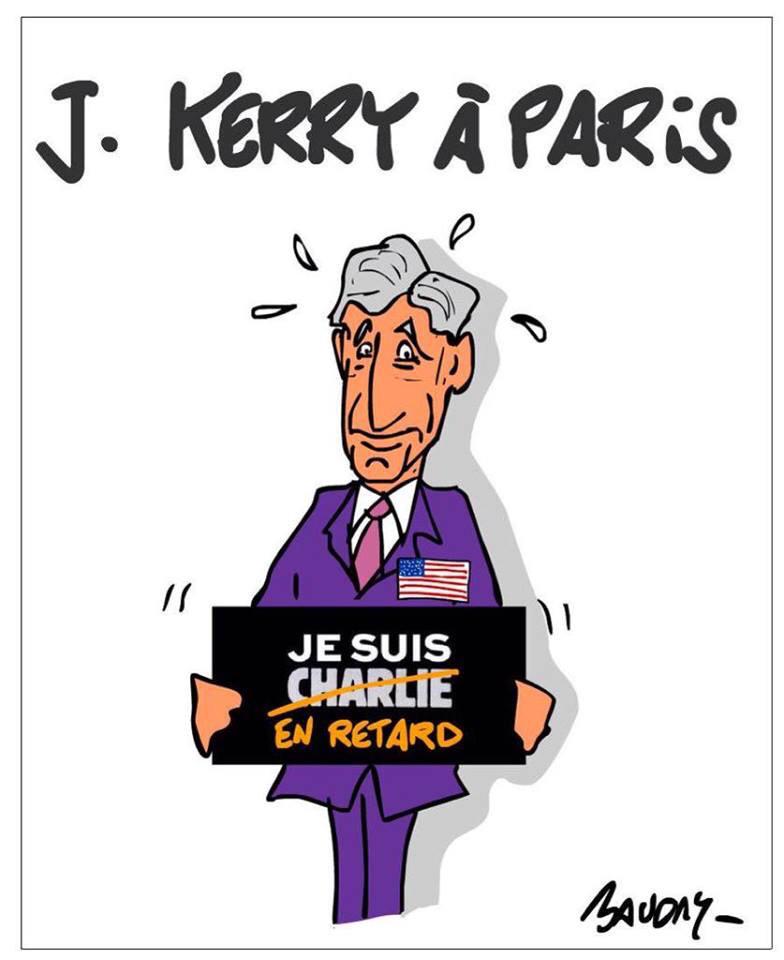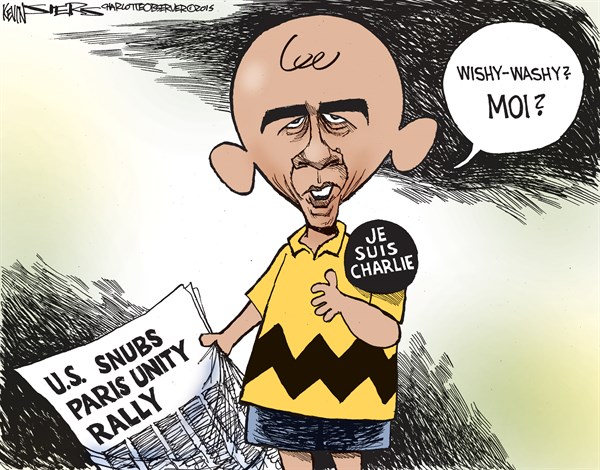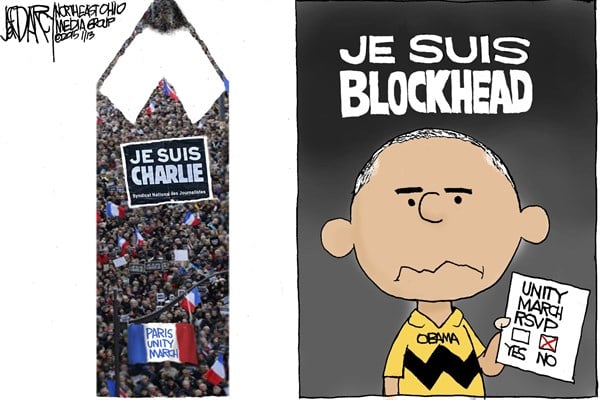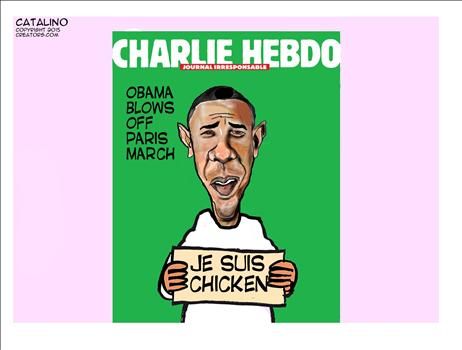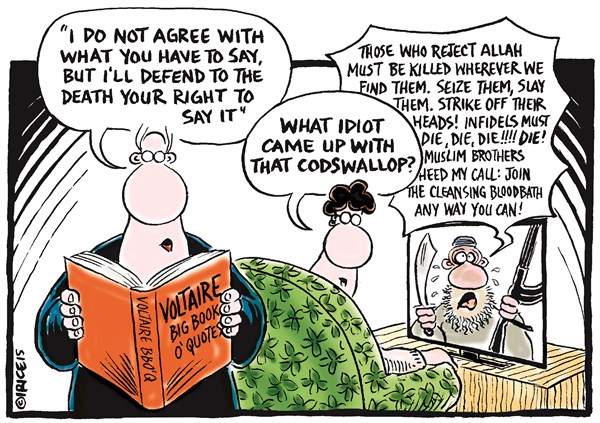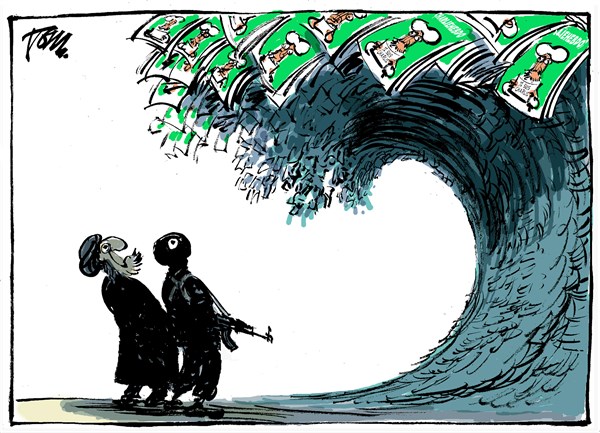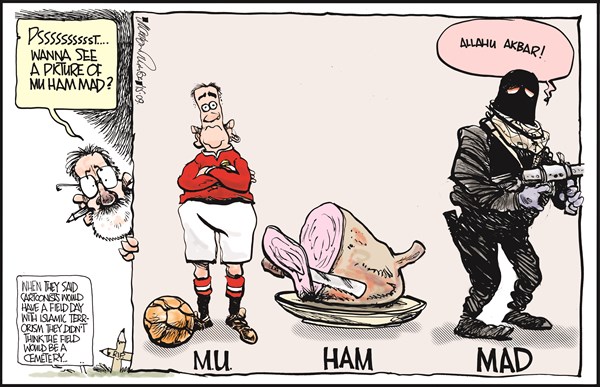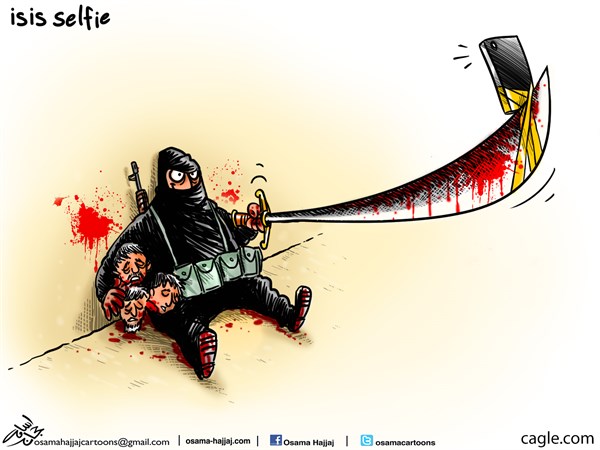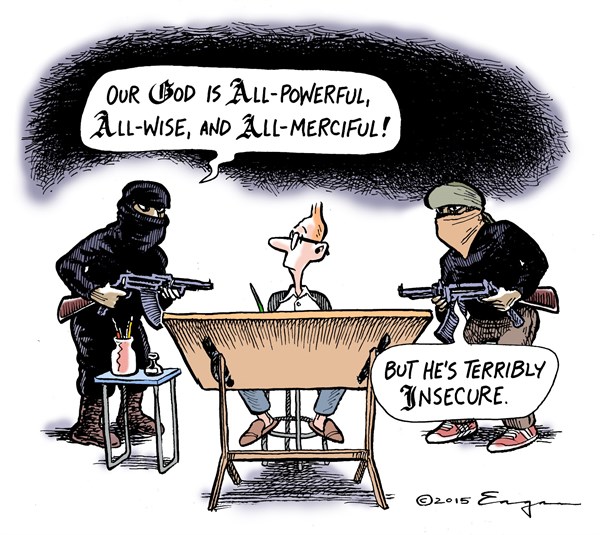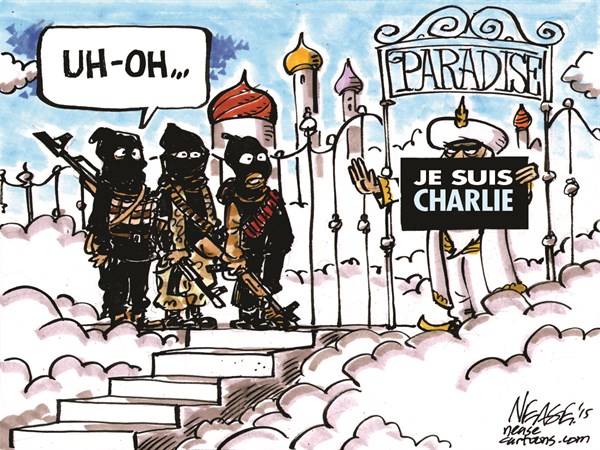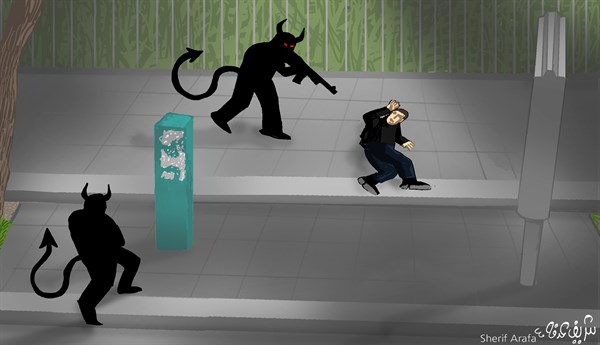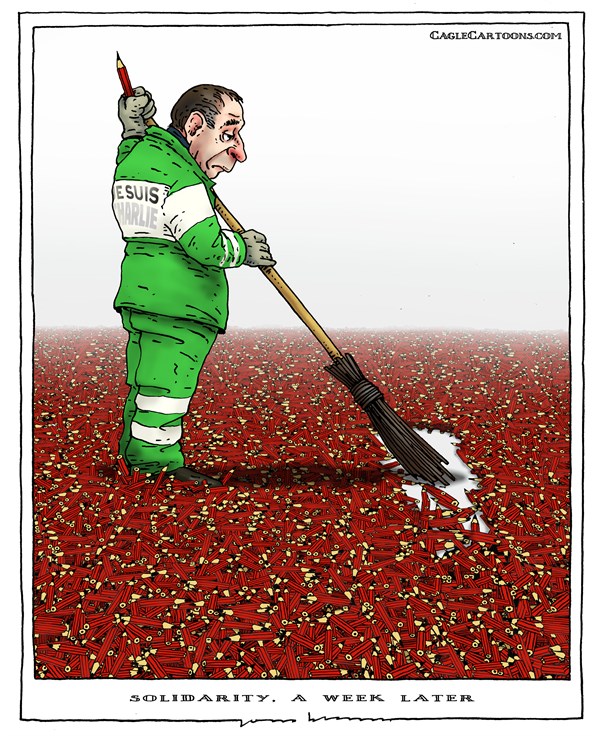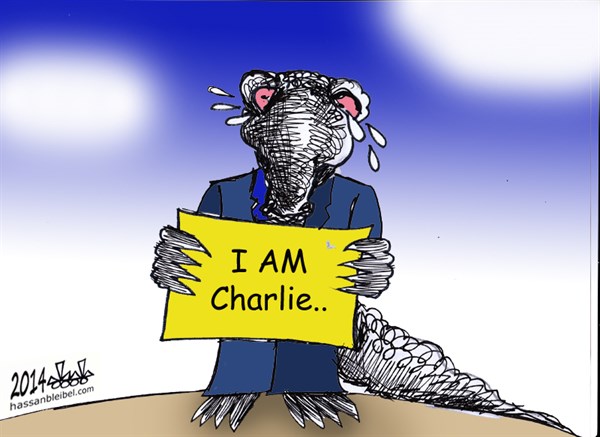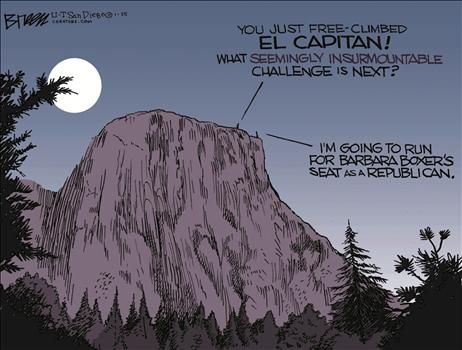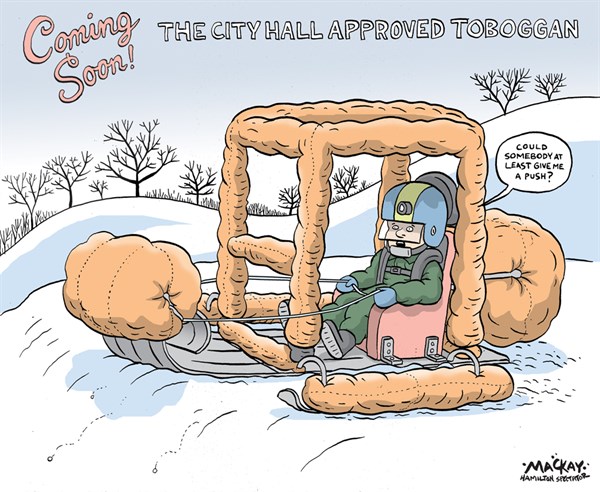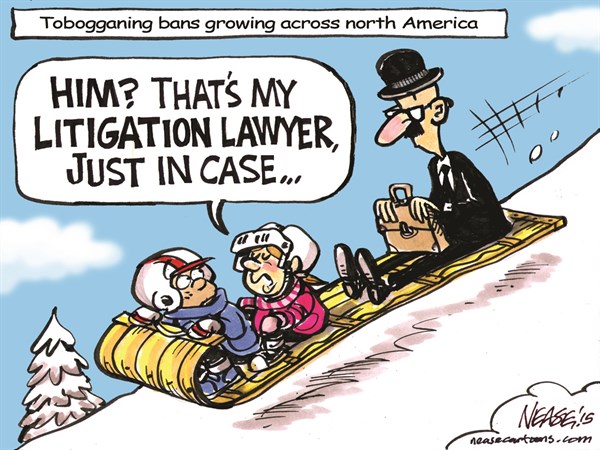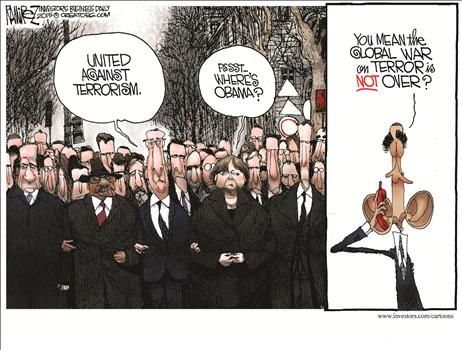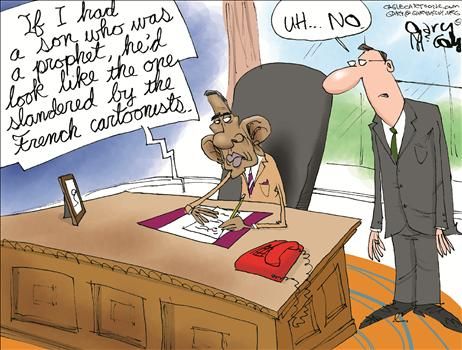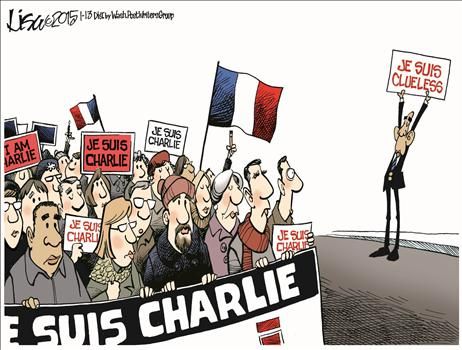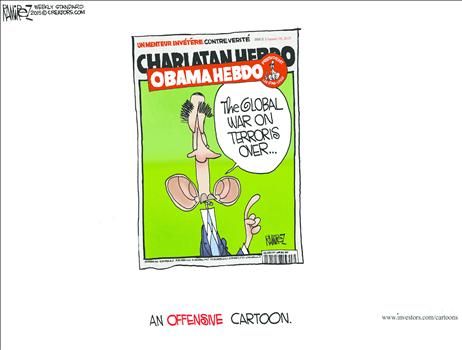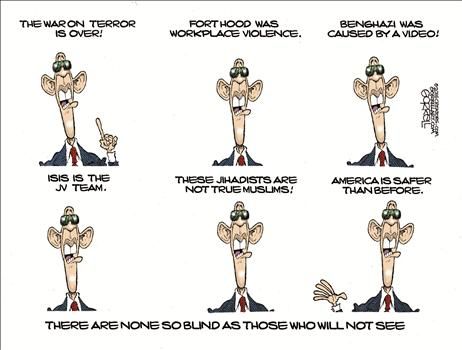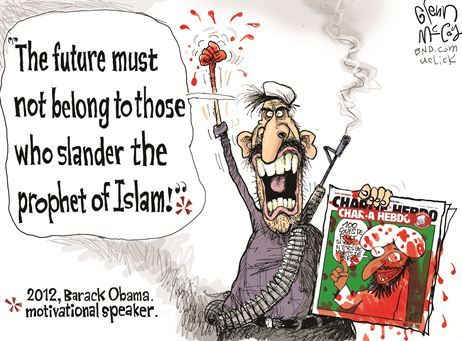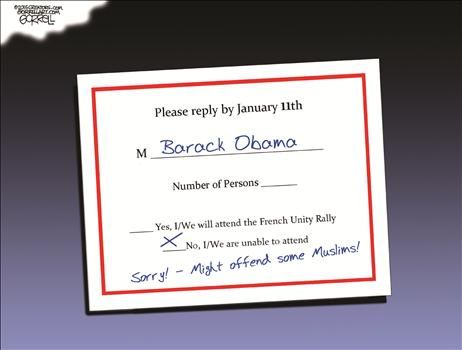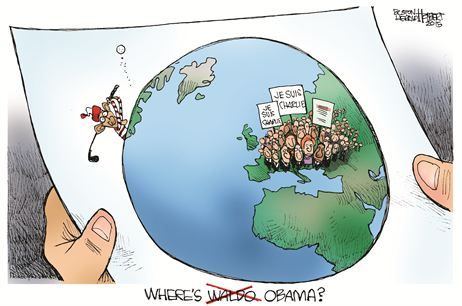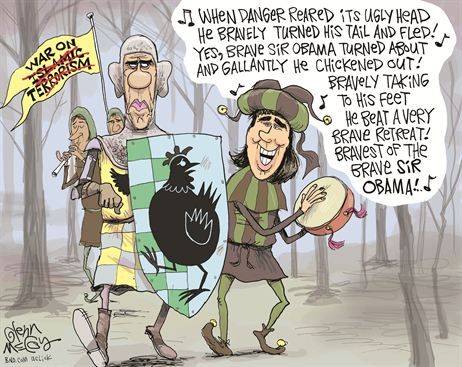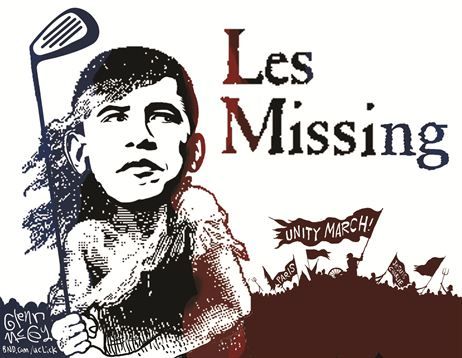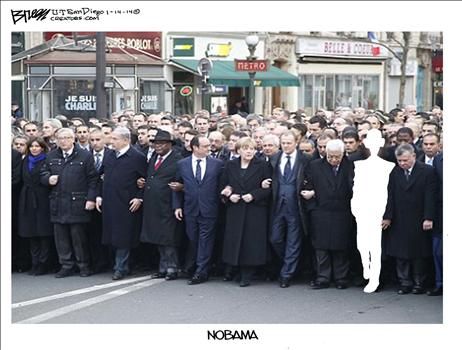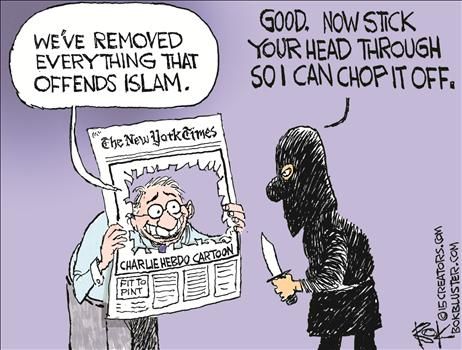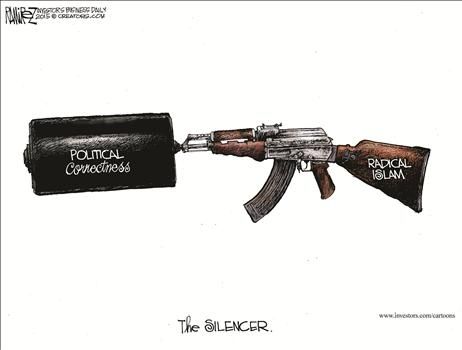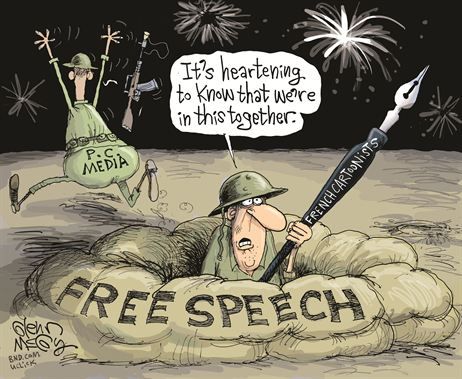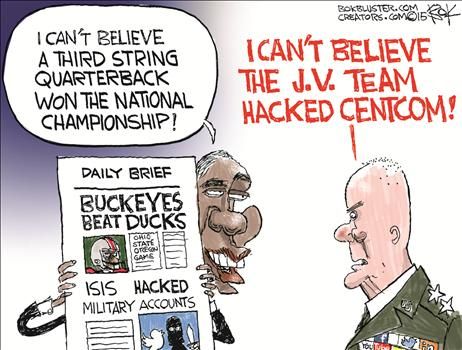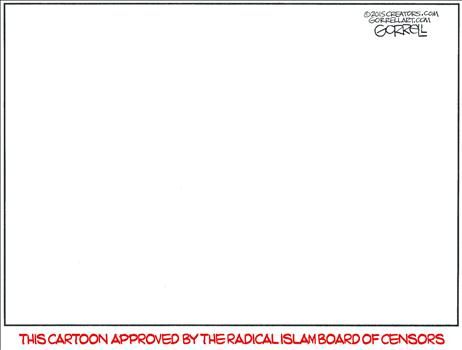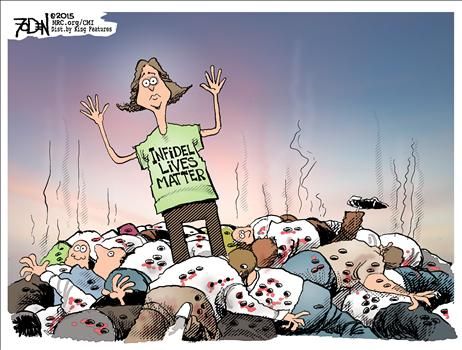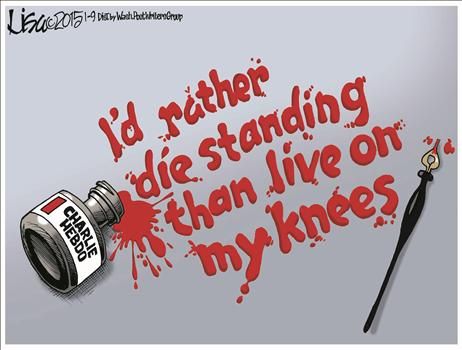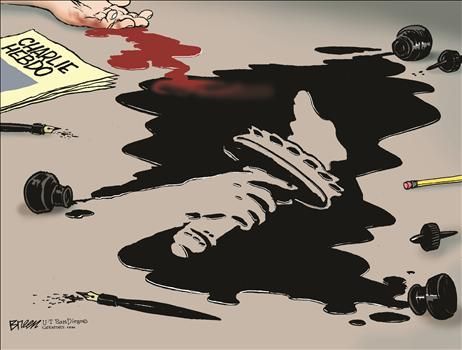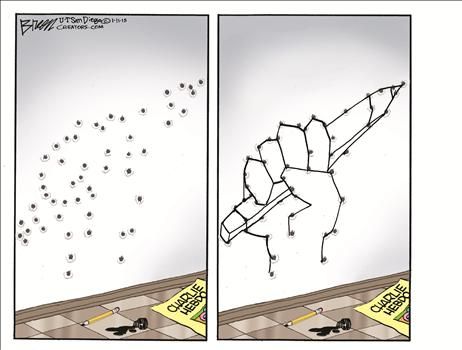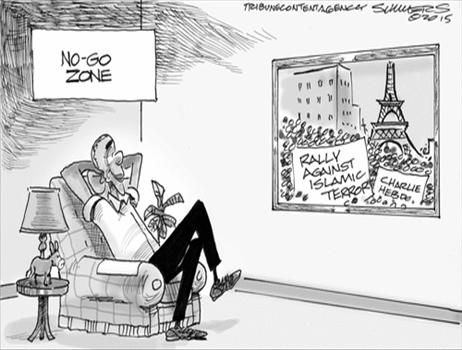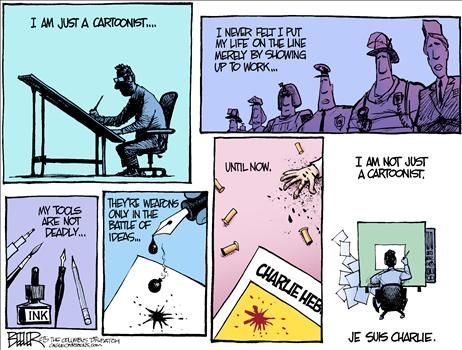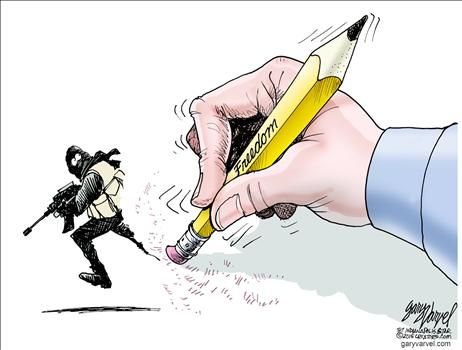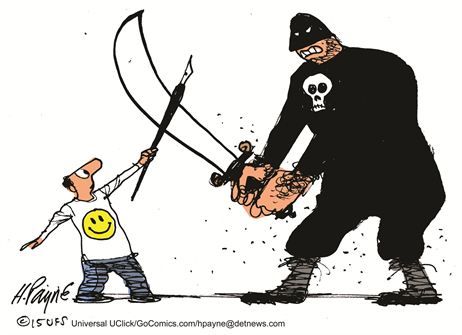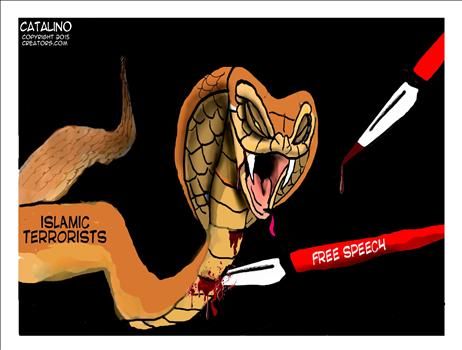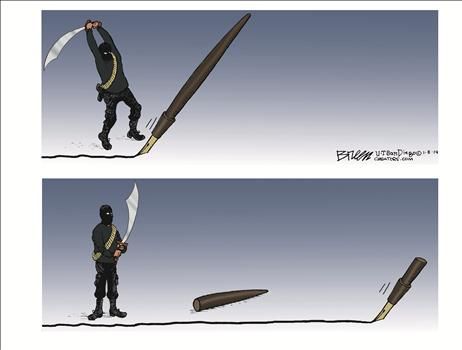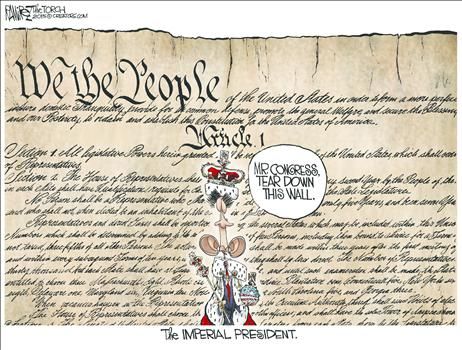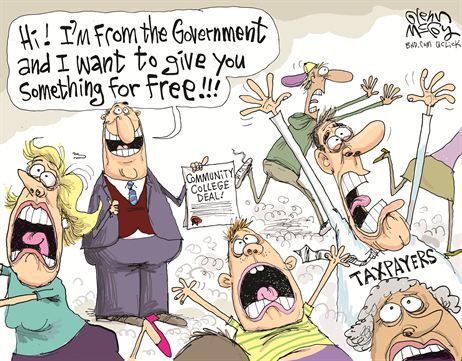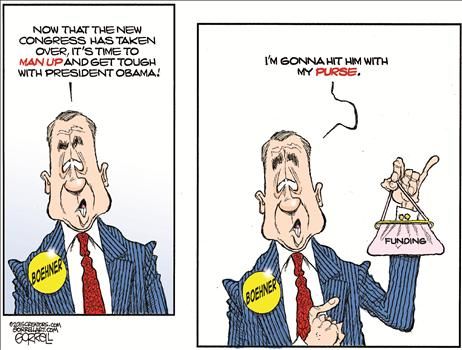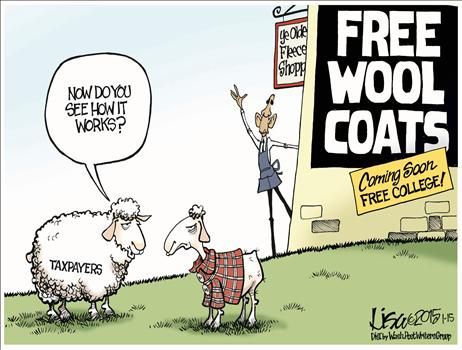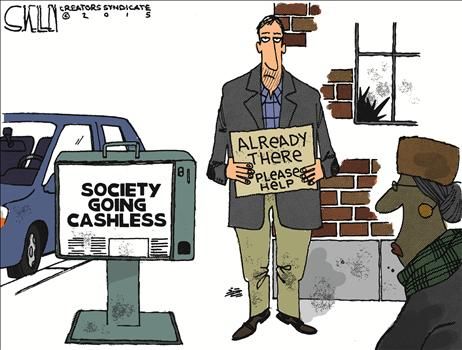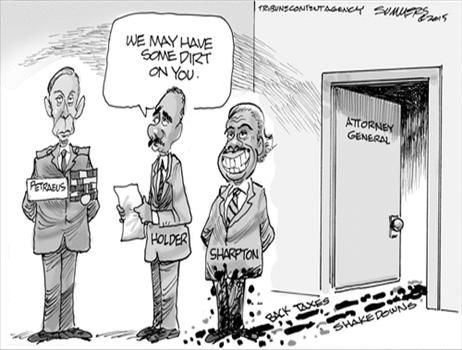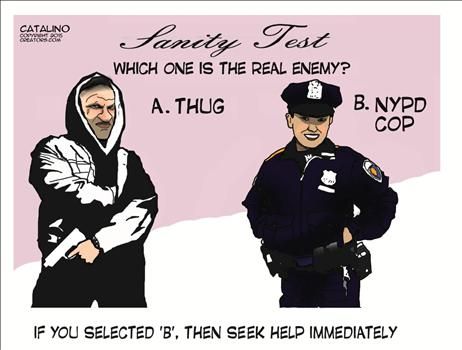
To face Islamist terror, we must face the facts about Islam's history
By Douglas Murray
The West’s movement towards the truth is remarkably slow. We drag ourselves towards it painfully, inch by inch, after each bloody Islamist assault.
In France, Britain, Germany, America and nearly every other country in the world it remains government policy to say that any and all attacks carried out in the name of Mohammed have ‘nothing to do with Islam’. It was said by George W. Bush after 9/11, Tony Blair after 7/7 and Tony Abbott after the Sydney attack last month. It is what David Cameron said after two British extremists cut off the head of Drummer Lee Rigby in London, when ‘Jihadi John’ cut off the head of aid worker Alan Henning in the ‘Islamic State’ and when Islamic extremists attacked a Kenyan mall, separated the Muslims from the Christians and shot the latter in the head. And, of course, it is what President François Hollande said after the massacre of journalists and Jews in Paris last week.
All these leaders are wrong. In private, they and their senior advisers often concede that they are telling a lie. The most sympathetic explanation is that they are telling a ‘noble lie’, provoked by a fear that we — the general public — are a lynch mob in waiting. ‘Noble’ or not, this lie is a mistake. First, because the general public do not rely on politicians for their information and can perfectly well read articles and books about Islam for themselves. Secondly, because the lie helps no one understand the threat we face. Thirdly, because it takes any heat off Muslims to deal with the bad traditions in their own religion. And fourthly, because unless mainstream politicians address these matters then one day perhaps the public will overtake their politicians to a truly alarming extent.
If politicians are so worried about this secondary ‘backlash’ problem then they would do well to remind us not to blame the jihadists’ actions on our peaceful compatriots and then deal with the primary problem — radical Islam — in order that no secondary, reactionary problem will ever grow.
Yet today our political class fuels both cause and nascent effect. Because the truth is there for all to see. To claim that people who punish people by killing them for blaspheming Islam while shouting ‘Allah is greatest’ has ‘nothing to do with Islam’ is madness. Because the violence of the Islamists is, truthfully, only to do with Islam: the worst version of Islam, certainly, but Islam nonetheless.
Last week, a chink was broken in this wall of disinformation when Sajid Javid, the only Muslim-born member of the British cabinet, and one of its brightest hopes, dipped a toe into this water. After the Paris attacks, he told the BBC: ‘The lazy answer would be to say that this has got nothing whatsoever to do with Islam or Muslims and that should be the end of that. That would be lazy and wrong.’ Sadly, he proceeded to utter the second most lazy thing one can say: ‘These people are using Islam, taking a peaceful religion and using it as a tool to carry out their activities.’
Here we land at the centre of the problem — a centre we have spent the last decade and a half trying to avoid: Islam is not a peaceful religion. No religion is, but Islam is especially not. It is certainly not, as some ill-informed people say, solely a religion of war. There are many peaceful verses in the Quran which — luckily for us — most Muslims live by. But it is by no means only a religion of peace.
I say this not because I hate Islam, nor do I have any special animus against Muslims, but simply because this is the verifiable truth based on the texts. Until we accept that we will never defeat the violence, we risk encouraging whole populations to take against all of Islam and abandon all those Muslims who are trying desperately to modernise, reform and de-literalise their faith. And — most importantly — we will give up our own traditions of free speech and historical inquiry and allow one religion to have an unbelievable advantage in the free marketplace of ideas.
It is not surprising that politicians have tried to avoid this debate by spinning a lie. The world would be an infinitely safer place if the historical Mohammed had behaved more like Buddha or Jesus. But he did not and an increasing number of people — Muslim and non-Muslim — have been able to learn this for themselves in recent years. But the light of modern critical inquiry which has begun to fall on Islam is a process which is already proving incredibly painful.
The ‘cartoon wars’ — which began when the Danish paper Jyllands-Posten published a set of cartoons in 2005 — are part of that. But as Flemming Rose, the man who commissioned those cartoons, said when I sat down with him this week, there remains a deep ignorance in the West about what people like the Charlie Hebdo murderers wish to achieve. And we keep ducking it. As Rose said, ‘I wish we had addressed all this nine years ago.’
Contra the political leaders, the Charlie Hebdo murderers were not lunatics without motive, but highly motivated extremists intent on enforcing Islamic blasphemy laws in 21st-century Europe. If you do not know the ideology — perverted or plausible though it may be — you can neither understand nor prevent such attacks. Nor, without knowing some Islamic history, could you understand why — whether in Mumbai or Paris — the Islamists always target the Jews.
Of course, some people are willing to give up a few of our rights. There seems, as Rose says in his book on the Danish cartoons affair, The Tyranny of Silence, some presumption that a diverse society requires greater limitations on speech, whereas of course the more diverse the society, the more diverse you are going to have to see your speech be. It is not just cartoons, but a whole system of inquiry which is being shut down in the West by way of hard intimidation and soft claims of offence-taking. The result is that, in contemporary Europe, Islam receives not an undue amount of criticism but a free ride which is unfair to all other religions. The night after the Charlie Hebdo atrocities I was pre-recording a Radio 4 programme. My fellow discussant was a very nice Muslim man who works to ‘de-radicalise’ extremists. We agreed on nearly everything. But at some point he said that one reason Muslims shouldn’t react to such cartoons is that Mohammed never objected to critics.
There may be some positive things to be said about Mohammed, but I thought this was pushing things too far and mentioned just one occasion when Mohammed didn’t welcome a critic. Asma bint Marwan was a female poetess who mocked the ‘Prophet’ and who, as a result, Mohammed had killed. It is in the texts. It is not a problem for me. But I can understand why it is a problem for decent Muslims. The moment I said this, my Muslim colleague went berserk. How dare I say this? I replied that it was in the Hadith and had a respectable chain of transmission (an important debate). He said it was a fabrication which he would not allow to stand. The upshot was that he refused to continue unless all mention of this was wiped from the recording. The BBC team agreed and I was left trying to find another way to express the same point. The broadcast had this ‘offensive’ fact left out.
I cannot imagine another religious discussion where this would happen, but it is perfectly normal when discussing Islam. On that occasion I chose one case, but I could have chosen many others, such as the hundreds of Jews Mohammed beheaded with his own hand. Again, that’s in the mainstream Islamic sources. I haven’t made it up. It used to be a problem for Muslims to rationalise, but now there are people trying to imitate such behaviour in our societies it has become a problem for all of us, and I don’t see why people in the free world should have to lie about what we read in historical texts.
We may all share a wish that these traditions were not there but they are and they look set to have serious consequences for us all. We might all agree that the history of Christianity has hardly been un-bloody. But is it not worth asking whether the history of Christianity would have been more bloody or less bloody if, instead of telling his followers to ‘turn the other cheek’, Jesus had called (even once) for his disciples to ‘slay’ non–believers and chop off their heads?
This is a problem with Islam — one that Muslims are going to have to work through. They could do so by a process which forces them to take their foundational texts less literally, or by an intellectually acceptable process of cherry-picking verses. Or prominent clerics could unite to declare the extremists non-Muslim. But there isn’t much hope of this happening. Last month, al-Azhar University in Cairo declared that although Isis members are terrorists they cannot be described as heretics.
We have spent 15 years pretending things about Islam, a complex religion with competing interpretations. It is true that most Muslims live their lives peacefully. But a sizeable portion (around 15 per cent and more in most surveys) follow a far more radical version. The remainder are sitting on a religion which is, in many of its current forms, a deeply unstable component. That has always been a problem for reformist Muslims. But the results of ongoing mass immigration to the West at the same time as a worldwide return to Islamic literalism means that this is now a problem for all of us. To stand even a chance of dealing with it, we are going to have to wake up to it and acknowledge it for what it is.
Related Reading:
The Forgotten Genocide: Why It Matters Today
